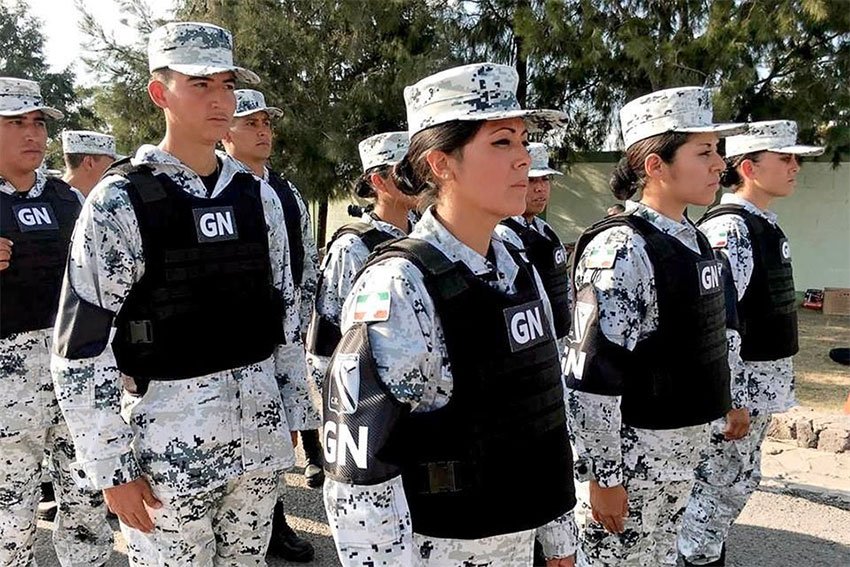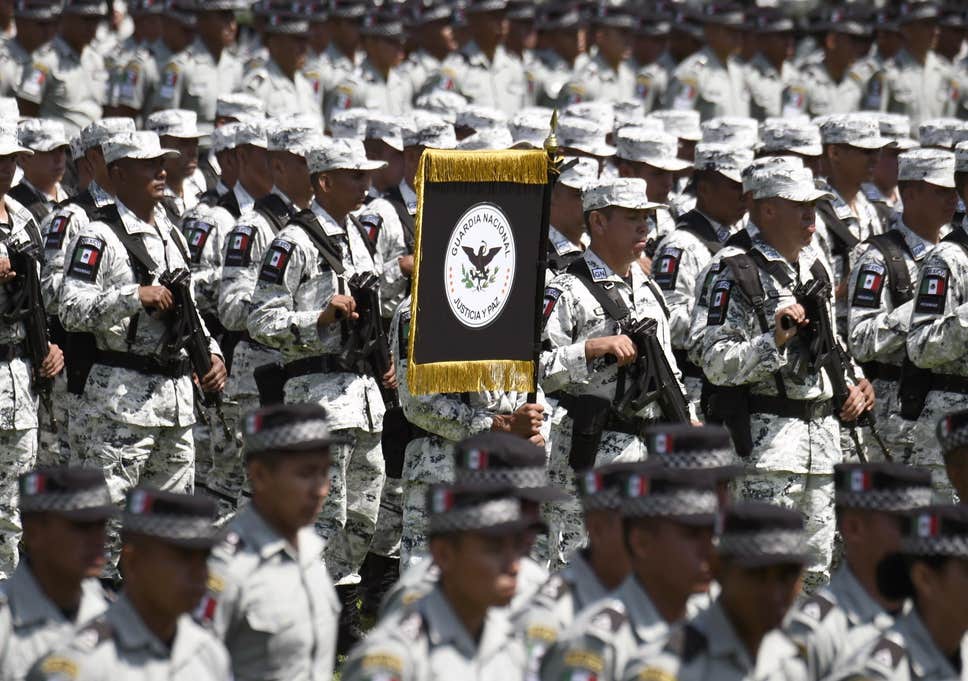Mexico’s police force is in shambles. The newly-created National Guard is unable to fill its ranks with new recruits and has force the Mexican government to pull more than 58,000 officers from other security forces to make up for the shortfall of civilian recruits. Despite pledging that he would recruit an additional 50,000 law enforcement officers by 2020, President Andrés Manuel López Obrador has made no major headway thus far, and various groups including non-governmental organizations (NGOs) claim that there is less incentive now more than ever to join Mexico’s police force. This is for a great many reasons that I will elaborate upon below.
Recently, there has been an uptick in violence, both against the police and in general, within Mexico. Just last year, 421 Mexican police officers were killed in the line of duty, while only 55 American police officers were killed in the line of duty. The Mexican public has been apathetic towards this trend, and, in many cases, law enforcement are no better. Officer Ramos’s patrol partner was shot eleven times and left to bleed to death on a tarmac in Mexico City. No one was arrested for the murder, despite large suspicions that it was committed by members of a local gang. In many cases, the police officers themselves doubt the legitimacy of their superiors as many Mexican law enforcement organizations are rife with corruption and, in some cases, extort business through protection fees or do the same with organized crime. This is to say that Mexico’s police will, at times, accept money from criminal groups and in turn will allow them to operate unmolested by the law.
The overall impotence of the Mexican police force stems from the lack of proper pay, equipment, benefits, and leadership that its officers suffer from. It is difficult to uphold the law when one cannot support their family, must purchase their own boots, has no healthcare, and is haunted by the suspicion that their superiors are secretly working with the criminals. By no means do I wish to imply that all or even the majority of Mexico’s police officers are corrupt, nor do I wish for the reader to believe that Mexico’s police of virtually of no use, but they are currently suffering from a great many institutional problems that must be addressed if they are to operate to the best of their ability.

The Mexican police force is portrayed to be an absolute mess. Interviews with current and retired officers only further cement this idea, and crime statistics paint Mexico as an increasingly lee-lawful country. While the article in no way paints every town and city in Mexico as being lethal to enter, there are a few that, with good reason, it describes as dangerous. The article also touches upon the public’s outrage against corruption within the police department, the attempts by officers at all level to reform it, and the positive progress, little as it may be, that has been made. In no way does the article attempt to paint Mexico as inherently lawless, nor is there any racial animus towards the people that live there. It is simply a situation wherein major reform must take place to fix the corruption to which any law enforcement organization might fall victim.

Crime and corruption are major issues within Mexico and few of the people who live within its borders can escape their influence. These issues are universally condemned by the people, but they are not always fought in an organized manner. Many just try to get by as best they can. The fact that the battle against crime and corruption is central to all major political campaigns speaks to its importance in the mind of the public. All across the political spectrum, candidates and political groups voice their concerns and various solutions to the problem. In terms of how we have viewed Mexico within the context of this course, I would wager that organized crime, for a great many reasons, is one of the largest threats that Mexico must deal with in the modern era. The issue has become so large that it has begun to overshadow other operations of the state, which is unacceptable for so many reasons.
